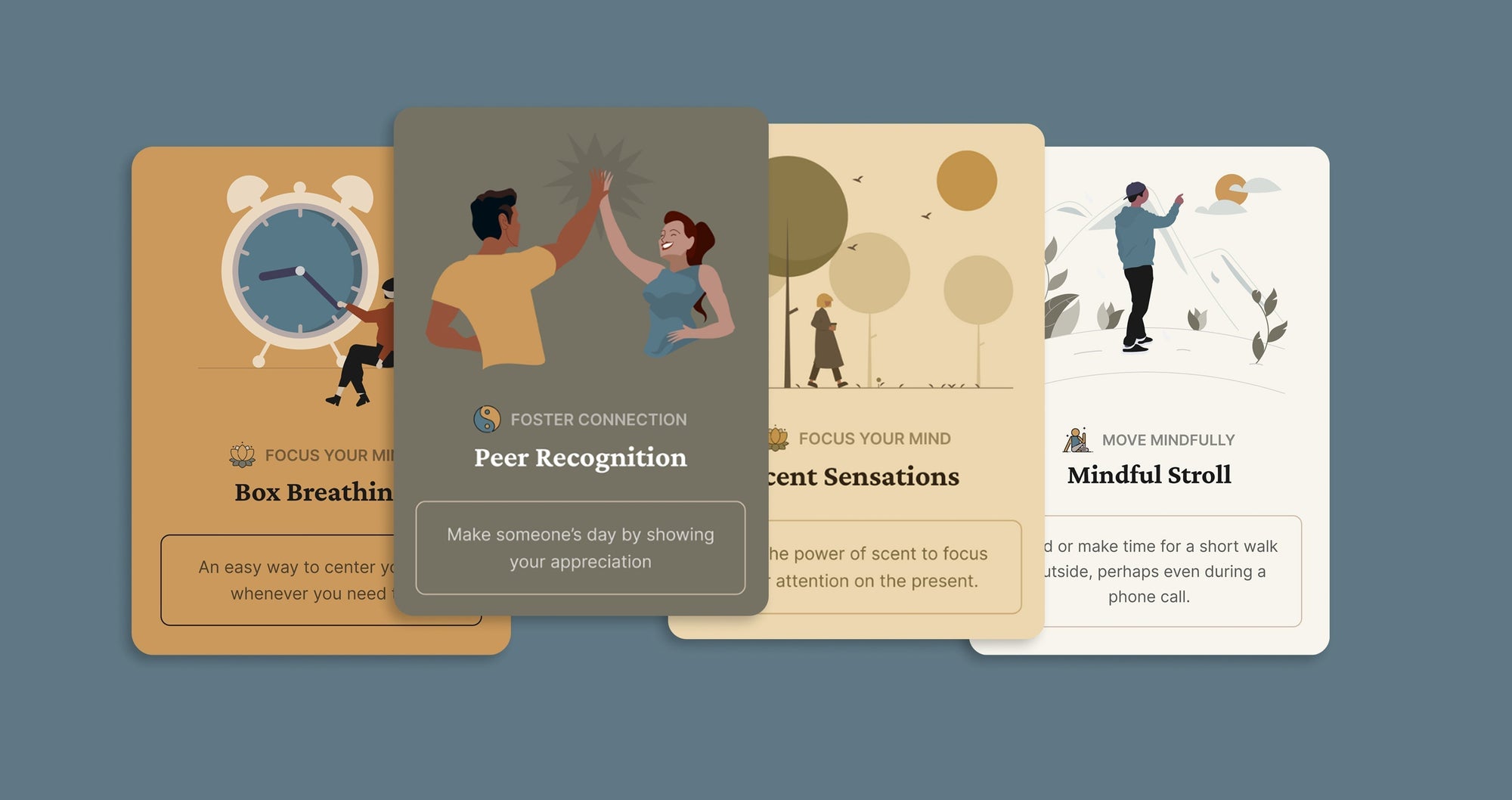"Ecotherapy'' is another term for the therapeutic benefits we receive when we connect with nature.
It might seem too simple to have a substantial impact on your mental and physical health, but in fact, frequent interactions with nature have been shown to enhance mental clarity, decision making, moods, sleep, and even healing and growth.
What exactly does it mean to "connect with nature"? It's all about being present, or, in other words, paying attention or being mindful of your surroundings when you're outdoors.
Even if your mind wanders when you're doing something outside, you'll still feel calmer just being in open, green, and natural spaces, which tend to be serene and capable of making us feel more connected.
How Spending Time in Nature Affects Us
Considering we humans are animals, it isn't surprising that we have a deep need to be outdoors in nature.
Yet, estimates show that by 2050, about two-thirds (66%) of the global population will likely live in cities. Even today, surveys show that on average Americans spend more than 90% of their time indoors!
No matter what your favorite ways to connect with nature are, whether walking outside for exercise or camping with your family, you'll likely benefit from decreased stress as a result. That's because nature has a soothing effect on our nervous systems, helping us to unwind and relax more easily. It's been found that 20 to 30 minutes immersed in a natural setting is enough to cause a big drop in levels of cortisol, our primary "stress hormone."
Research shows that spending time outdoors—including in "green spaces" such as forests or parks, at beaches, or just about anywhere else with a natural setting—is associated with many mind and body health perks, such as:
-
Decreased anxiety and lower risk for depression
-
Higher vitamin D levels, which support immune defenses, bone health, and much more
-
Decreased risk for certain chronic diseases
-
Improved sleep quality (outdoor light exposure helps regulate your circadian rhythm, which is like your "internal clock" that governs when you feel sleepy vs. alert)
-
Increased energy/less fatigue
-
Improved sleep
-
Help with cognitive functions, including problem solving, creativity and brainstorming
8 Ways to Connect with Nature
It's easier to spend a good amount of time outside if you live somewhere picturesque and lush, but even if you're a city dweller, you can still find ways to bring the benefits of nature into your life.
Below are a variety of ways to connect with nature on a regular basis, including those you can do solo or with friends, with family, or with your pets.
1. Take a daily walk
Outdoor walks are accessible to just about everybody, free, and easy to do anywhere. If you're short on time, simply walk around your neighborhood or find a nearby destination to head to. You can walk with a neighborhood walking buddy, take a daily walk as a family, or walk to do errands if you live close enough to stores.
For the most mood-enhancing effects, unplug and leave your phone at home. Instead of listening to music, and open up your eyes (and ears) to what's going on around you.
If you're up for more intense types of exercise, running or cycling outside are other great options, especially in parks or trails in your area.
2. Start a garden or plant flowers
Gardening is a great way to feel more peaceful and content, and even a great way to squeeze in some low-intensity exercise and stretching into your day. It can feel mediative to plant flowers or vegetables and tend to a garden, since it requires your attention. This helps to lower fixation on negative thoughts and allows you to "take in the present moment" more easily. Gardening also offers some inspiring metaphors for life changes, including the regular rebirth of spring, and "turning over a new leaf."
3. Go camping
There are plenty of different ways to camp, whether you prefer "glamping" ("glamorous camping") or more rugged getaways with fewer amenities. Either way, camping is one of the best ways to spend continuous time in nature, since it involves eating, hanging out, and sleeping under the stars.
You can take camping to the next level by enjoying different activities while outside, such as hot-spring therapy, Tai chi, meditation, breathing exercises, or meditative walks.
4. Spend time on the beach
Depending on where you live, you might have access to scenic bodies of water like oceans, bays, rivers, or lakes. Use these to your advantage and spend some time lounging on the sand, swimming, kayaking, or reading shoreside on a blanket.
5. Visit a national park
Have a picnic at a nearby scenic park with your family, go for a bike ride, or plan a fun game with friends such as frisbee.
You can also practice simply "being" instead of doing anything in particular when visiting a park, which is known as "forest bathing." This term originated in Japan in the 1980s to describe the psychological exercise called shinrin-yoku, which is all about being in a meditative state while connecting to nature.
To reap the perks of forest bathing, try taking nature in through all of your senses: listen to the sounds of the forest, pay attention to the colors and scents of plants, feel the sunlight on your skin, and purposefully breathe in the fresh air.
6. Practice earthing
"Earthing" (also called "grounding") is the practice of walking barefoot or lying on grass, sand, dirt, or rock. It's thought to be both calming and energizing because it puts your body into direct contact with the earth's electrical current. This might sound a little far-fetched, but there's evidence showing it can actually stabilize your physiology and help reduce inflammation, pain, stress, fatigue, and poor sleep.
7. Watch the sunset or sunrise
At least a few times a year, make a point of catching the sunrise or sunset. Get up extra early one morning and enjoy some coffee outside while you watch the sun come up and soak in the stillness.
8. Bring nature into your home
According to a 2019 study published in Health and Place, "Connection with nature is a lifelong process that is particularly valued by older adults." The elderly often struggle to get outdoors on a daily basis due to problems with mobility, but bringing greenery, sunlight, and fresh air into their homes can have a big impact on their wellbeing.
How can you connect with nature at home? Here are some ideas:
-
Tend to indoor plants
-
Open up the blinds and windows to let in natural light and air
-
Eat sustainable foods, ideally some that you've grown yourself
-
Buy a fish tank or get a house pet such as a bird or cat






1 comment
Pauline Eversmann
As someone who have recently experienced a “life-changing” event, namely moving from a large house where I lived for 30+ years to a CCRC in a new state, I can testify that nature “hath charms to soothe the savage breast.” I start each day with a walk along our communities board walk to the intracoastal waterway, enjoying the beauty of the day and the almost relentless chirping of the birds. Speaking of birds, I love standing on our deck with my Merlin app at the ready and watching the list of birds download. Both activities remind me to seize the day and live in the present..
As someone who have recently experienced a “life-changing” event, namely moving from a large house where I lived for 30+ years to a CCRC in a new state, I can testify that nature “hath charms to soothe the savage breast.” I start each day with a walk along our communities board walk to the intracoastal waterway, enjoying the beauty of the day and the almost relentless chirping of the birds. Speaking of birds, I love standing on our deck with my Merlin app at the ready and watching the list of birds download. Both activities remind me to seize the day and live in the present..